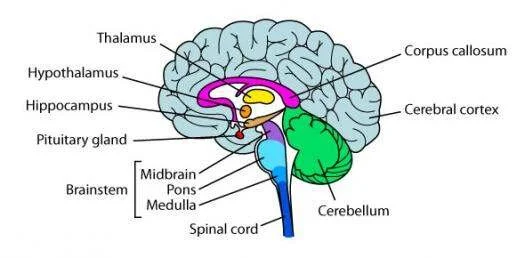For me knowing how the brain is affected by trauma is a useful tool that is aiding in my path to recovery. Its helped me understand what I have been experiencing and how it effects me in my day to day life.
Outlined below in a very simplistic explanation of a very complex process and a psychologist, a GP or Psychiatrist will be able to provide you with more information. There are three main parts of the brain that are greatly affected by experiencing severe traumatic events.
Hippocampus
The Hippocampus processes trauma memories, by recycling the memory, mostly at night via dreams, which takes place over weeks or months. It then transfers the integrated store memory to another part go the brain. High levels of stress hormones causes the hippocampus to shrink or under-develop, resulting in impaired function. Childhood trauma exaggerates this effect. The trauma memory therefore remains unprocessed in the hippocampus, disintegrated, fragmented, and feels “current” rather than in the past. (Some people may be born with a smaller hippocampus making them more vulnerable to develop PTSD.)
Amygdala
The brain’s “fear centre”. The amygdala helps to store memories, particularly emotions and physical sensations. It also controls the activation of stress hormones - the body’s fight or flight response. In PTSD, the amygdala becomes over-active causing frequent or near constant levels of stress hormones.
Pre-frontal cortex
The pre-frontal cortex helps us to asses threats, manage emotion, plan responses and control impulses. It is the centre of rational thinking. Childhood trauma causes under-development of the pre-frontal cortex, who results in impaired ability to assess threat through rational thinking, manage emotions and control impulses.
PTSD
Current triggers
Hippocampus recalls part of fragmented and disintegrated memory – thought, image etc
Amygdala reacts – emotional and body memory reactivated – ‘flashback’ re-experiencing of event. Interprets as current threat – emergency - stress hormones – fight / flight response
Pre-frontal cortex unable to rationalise or determine that situation is not a current threat and therefore safe. Difficulty in managing emotions or controlling impulses
Attempts to escape or avoid distressing memories and feelings mean the memory is never processed, so symptoms remain

